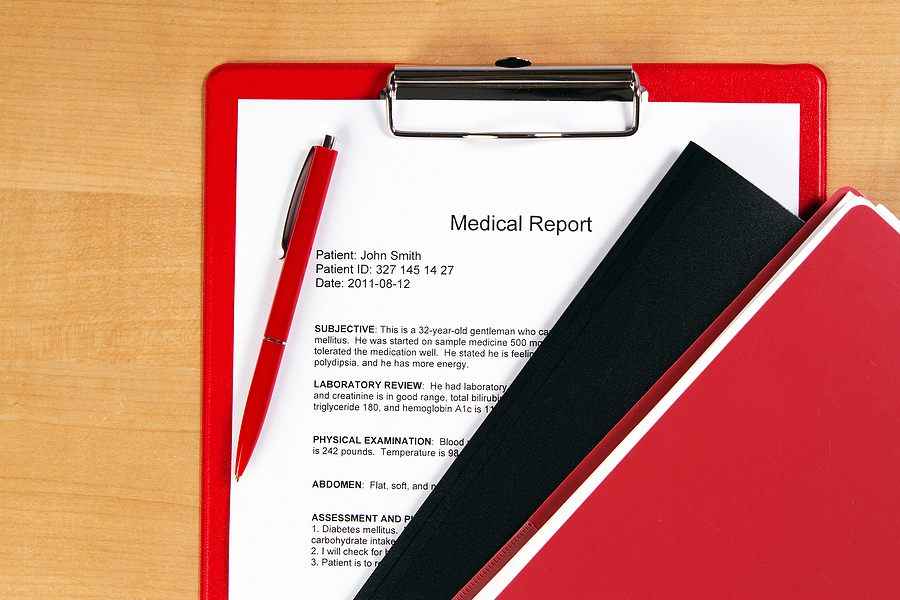When faced with the aftermath of an injury, whether from a car crash, workplace mishap, or a slip and fall incident, the subsequent steps can often be perplexing and daunting. Amidst the chaos, pain, and the quest for legal justice, there lies a silent, yet potent protagonist – your medical records. In personal injury cases, these documents play an indispensable role, going beyond mere paperwork. Let’s dive into understanding the significance of maintaining and accessing medical records after sustaining an injury.
- Evidence of Injury: The very foundation of a personal injury claim is, of course, the injury itself. Medical records provide irrefutable evidence that the injury occurred, detailing its nature, extent, and the medical intervention it necessitated. Without these records, it’s just one’s word against another’s, which can significantly weaken a claim.
- Linking Injury to the Incident: It’s crucial to establish that the injury resulted from the specific incident in question and wasn’t a pre-existing condition or caused by another event. Timely medical evaluations, with records documenting the same, fortify the connection between the injury and the incident.
- Detailing the Severity and Prognosis: Medical records furnish intricate details about the injury’s severity, treatments administered, prescribed medications, surgical procedures, if any, and the anticipated recovery period. This information is invaluable in ascertaining the compensation amount, considering current and future medical expenses, loss of earnings, pain, and suffering.
- Calculating Economic Damages: Tangible losses, such as medical bills, therapy costs, and other related expenses, can be accurately calculated with the aid of comprehensive medical records. They offer a clear view of the financial burden placed on the injured party due to the incident.
- Chronicling Long-Term Impact: Some injuries may have prolonged or permanent effects, necessitating ongoing medical care, therapy, or lifestyle adjustments. Medical records, especially those forecasting future treatments or outlining rehabilitation plans, aid in projecting these long-term implications and the associated costs.
- Validating Pain and Suffering: While economic damages are quantifiable, non-economic damages, like pain, emotional distress, and diminished quality of life, are subjective. Here, medical records serve as crucial evidence. Notes by physicians, therapists, or counselors about the physical pain, psychological effects, or emotional trauma experienced by the victim, provide a tangible basis for claiming such damages.
- Strengthening Credibility: Consistency is key. If one’s verbal claims align with the medical records, it bolsters the individual’s credibility in the eyes of the court or the opposing party. Regular medical check-ups and consistent documentation reflect the genuine nature of the victim’s grievances.
- Impact on Insurance Negotiations: Medical records don’t just hold weight in court; they’re equally impactful during negotiations with insurance companies. Insurers often scrutinize medical documents to evaluate the validity of a claim. A comprehensive set of records can limit an insurance company’s ability to dispute the extent of the injury or the necessity of certain treatments. It provides a solid foundation for your claim, which can lead to a swifter and fairer settlement.
- Tracking Recovery Progress and Setbacks: As a victim undergoes treatment, recovery isn’t always linear. There might be setbacks, complications, or secondary issues arising from the initial injury. Regularly updated medical records chronicle this journey. They can capture moments when a patient had to revert to intensive treatments after seemingly getting better or when new symptoms surfaced. This ongoing narrative can be crucial, especially in cases where the defense might argue that the victim is exaggerating their condition. The detailed chronology of medical records acts as a rebuttal, showcasing the genuine challenges faced during the recovery process.
Challenges in Accessing Medical Records
While understanding the importance of medical records is one thing, accessing them can present challenges. Due to privacy laws, one might face hurdles obtaining these documents without the proper authorizations in place. It’s always advisable to be proactive. Inform your healthcare provider about the need for detailed records and ensure you have the necessary permissions to access them. Additionally, keeping personal copies of every medical bill, prescription, and related document can be immensely beneficial.
Conclusion
The trajectory of a personal injury case can be profoundly influenced by the quality and thoroughness of the medical records presented. They’re not just records; they’re a testament to an individual’s ordeal, pain, and the journey to recovery. If you or a loved one find yourselves entangled in the complexities of a personal injury case in the Lake Charles region, it’s imperative to seek adept legal counsel. Partnering with dedicated Lake Charles lawyers ensures that every piece of evidence, especially medical records, is meticulously analyzed and presented, maximizing your chances of securing the rightful compensation.
Image Source: BigStockPhoto.com (Licensed)
Related Categories: Legal, Reviews








